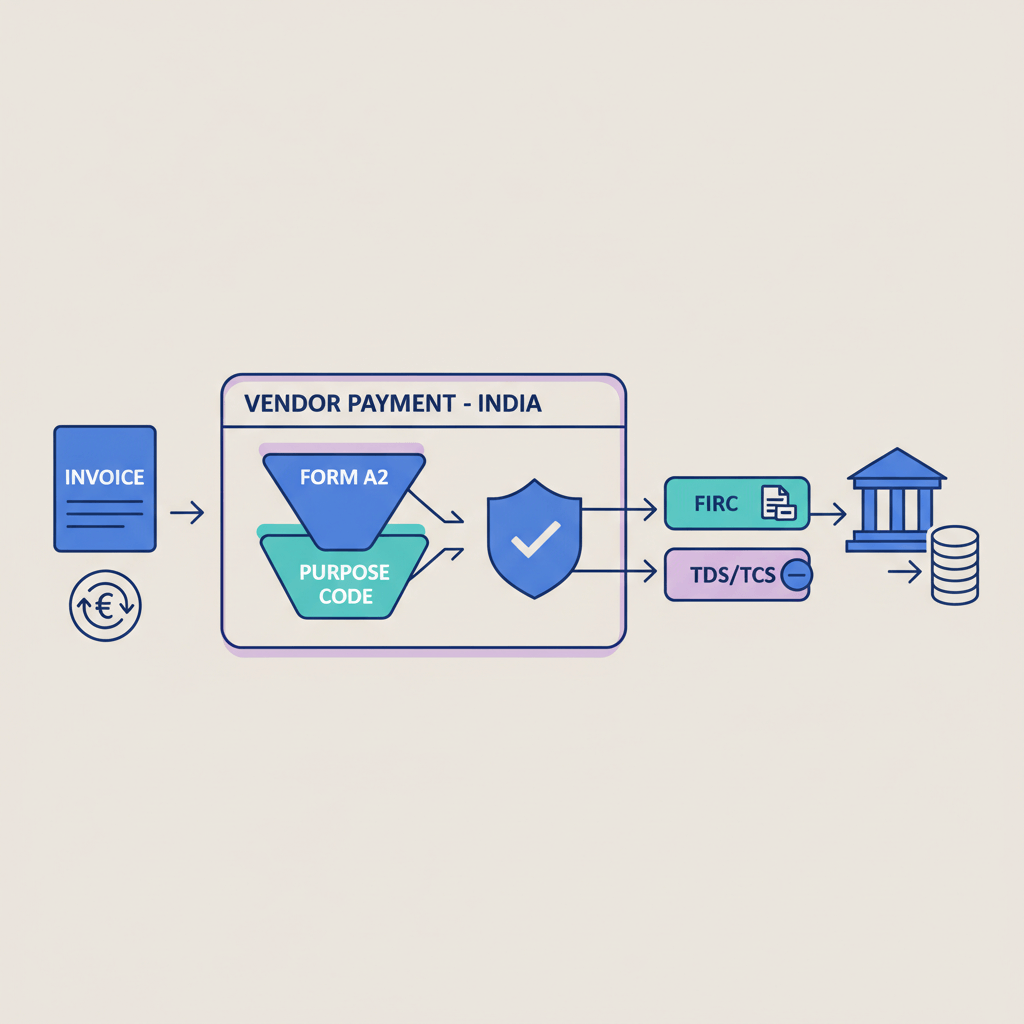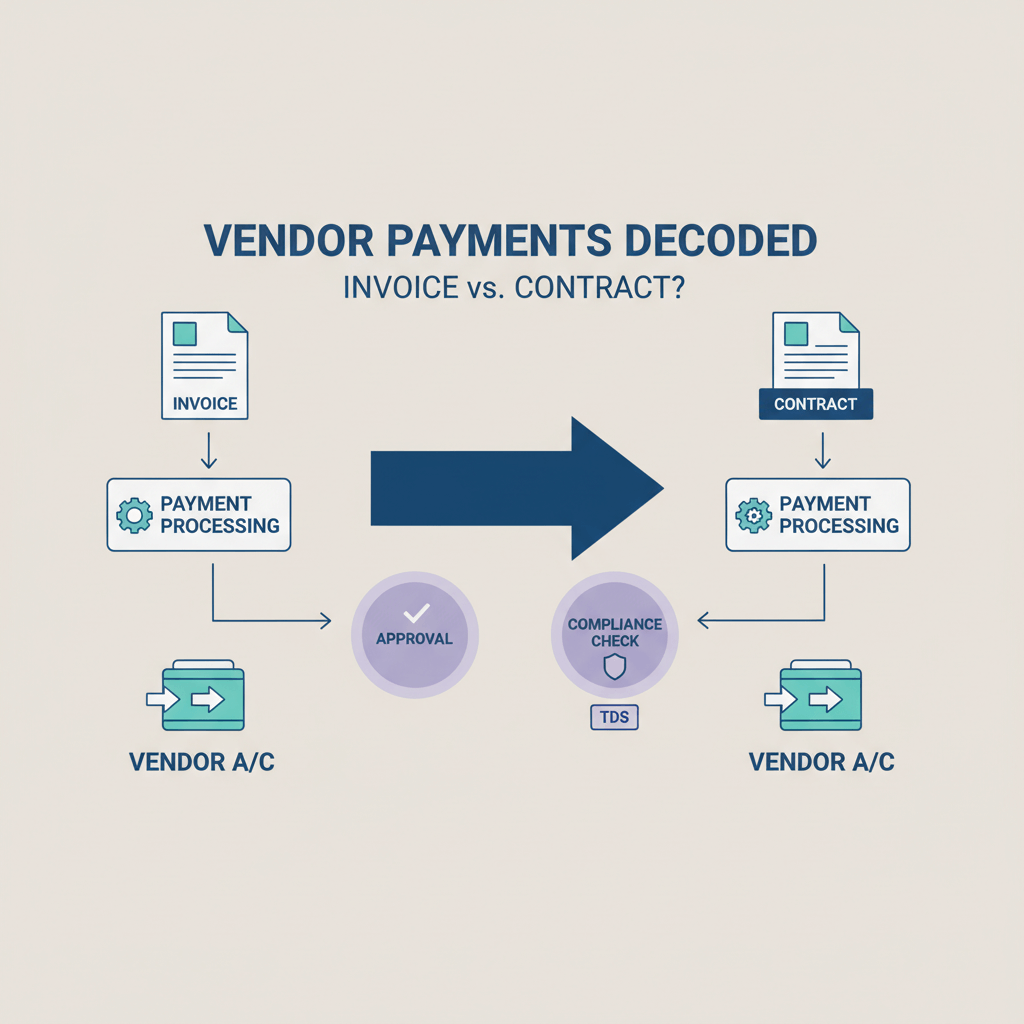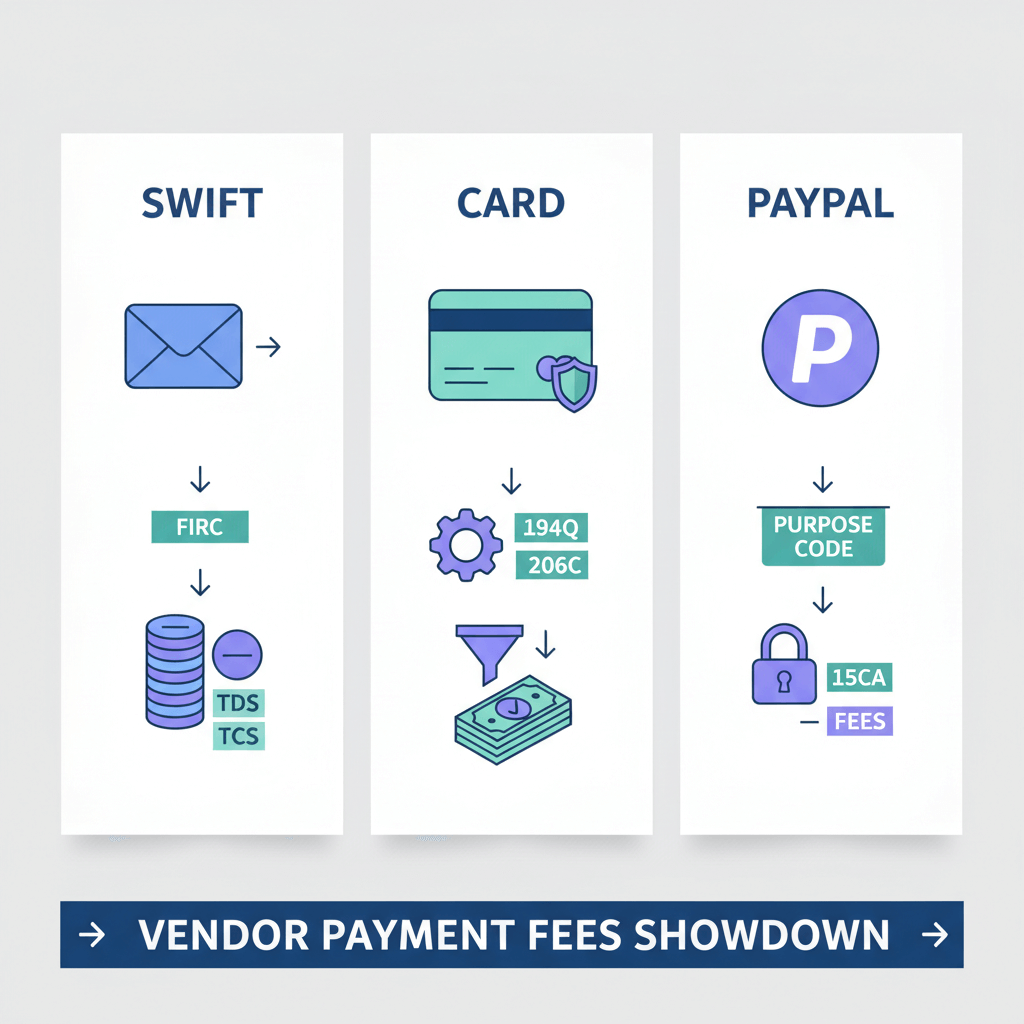Is crypto legal for freelancer payments India? The clear answer
Crypto ownership and trading are legal in India, yet crypto is not legal tender and cannot replace INR or foreign currency for paying wages or invoices. See is crypto legal in India in 2025 for context.
For freelancers, export service payments must arrive via authorized banking channels in convertible foreign currency or permitted INR, and crypto receipts do not satisfy this condition. See cryptocurrency regulations in India.
No authorized dealer, no e-FIRA, no clean export realization trail, more questions during audits and assessments, as discussed in is it legal to pay people with cryptocurrencies in India.
Bottom line, you will not face criminal charges just for receiving crypto, but you invite compliance complications that can cost more than any fee savings.
Understanding the 2025 regulatory landscape
FEMA and RBI export rules
The Foreign Exchange Management Act requires export proceeds to come through authorized dealers. Crypto receipts lack an authorized dealer, a bank statement trail, and an e-FIRA. See also Blockchain 2025 India trends and developments.
Income tax treatment
Crypto is categorized as VDA. For freelancers, the INR fair market value upon receipt is business income, and later conversion gains or losses are taxed at 30% under VDA rules, with 1% TDS on transfers above thresholds, summarized in VDA tax rules overview. Keep detailed records, see documentation requirements.
GST on export of services
Exports are zero rated under GST if consideration is received in convertible foreign currency or permitted INR via banks, explained in LUT for zero rated services. Crypto may break this condition, risking GST liability, which Blockchain 2025 India trends and developments also highlights.
AML and PMLA concerns
Direct wallet-to-wallet crypto payments lack bank-grade KYC and audit trails, which can trigger bank scrutiny during INR deposits, as noted in Toku’s compliance overview.
Why foreign clients prefer paying in crypto
These are valid reasons for them, but the compliance cost lands on you in India.
Stablecoins vs bank transfer India, a real comparison
Legal tender status
Stablecoins are not legal tender, see is crypto legal in India in 2025. Bank transfers in recognized currencies move within authorized channels, see Chambers guide.
Compliance and documentation
Bank transfers generate an e-FIRA/FIRC automatically, satisfying FEMA, GST, and tax needs, a point also echoed in Toku’s resource. Crypto only yields a transaction hash, not RBI recognized proof.
Tax and audit trail
Banks produce clean records for your CA. Crypto requires meticulous FMV logs, wallet and exchange statements, and TDS reconciliation, as outlined in VDA tax rules overview.
Conversion and access risk
Exchanges can impose limits, delays, or face operational issues, and certain addresses can be blacklisted. See crypto regulations and risks.
Speed and fees
Stablecoins are fast, yet local rails like ACH, SEPA, and Faster Payments can be same day or next day, especially when paired with modern platforms, see cross border payment rails.
For most Indian freelancers, compliant bank transfers win.
What to do if you have already received crypto payments
Document everything immediately
Create a log with date, time, from and to wallet addresses, transaction hash, asset and amount, INR FMV at receipt, invoice purpose, and client details. Keep screenshots and export statements, as suggested in documentation requirements.
Understand your tax reporting obligations
Report FMV at receipt as business income, and any subsequent gain or loss on sale as VDA income taxed at 30% under Section 115BBH, with 1% TDS considerations, per VDA tax rules overview. Work with a CA.
Convert through compliant channels
Use a KYC registered Indian exchange to sell crypto to INR, avoid P2P and unregistered platforms, and retain all exchange and bank records, per best practices.
Address the GST export issue
If you claimed zero rating while receiving crypto, discuss corrective actions with your CA, as highlighted in GST implications for exports.
Fix it going forward
Politely insist on bank transfers for future payments. If feasible, have the client repay via bank and return crypto, then document clearly.
Consider voluntary disclosure
If there are multiple unreported crypto receipts, consult on voluntary disclosure to reduce penalties.
How to politely decline crypto and offer compliant alternatives
Acknowledge the request
Thanks for suggesting USDT, I know it is quick and cost effective on your side.
Explain your situation simply
Indian rules require receipts via banking channels for export services, otherwise documentation and audits become messy, as noted in this compliance overview.
Offer easy alternatives
Propose local transfers like ACH, SEPA, or Faster Payments that settle quickly and cheaply, see international rails.
Provide clear instructions
Share currency specific account details and confirm you will provide official receipt documentation, including e-FIRA.
Stand firm if needed
Decide based on risk and frequency, one off exceptions with specialist advice may be possible, but ongoing crypto billing is rarely worth the burden.
Compliant payment solutions that compete with crypto speed and fees
Consider Karbon Business for virtual USD, GBP, EUR, and CAD accounts, mid market FX with zero markup, 24 to 48 hour INR settlement, automatic e-FIRA, and a flat 1% fee. Other options include Wise Business, Payoneer, PayPal, and Razorpay X International, though fees and FX may vary.
Example: A Pune designer declined USDT, shared USD ACH details, received funds by Wednesday, got auto e-FIRA, and closed the books cleanly, fee 1%.
Real risks beyond compliance, what freelancers often miss
Banking relationship risk
Banks may flag frequent crypto related INR deposits, request documents, or impose restrictions, as cautioned in Toku’s guidance.
Volatility during conversion delay
Stablecoins can depeg during exchange queues or KYC delays, causing loss versus your invoice amount, whereas compliant solutions convert at transparent, locked rates.
Client perception and professionalism
Bank grade invoices and receipts signal reliability, crypto wallet requests can feel informal to corporate clients.
Future proofing your business
With evolving regulations, building on RBI recognized rails protects you from rule changes that could tighten controls on VDAs.
Actionable steps, setting up compliant international payments today
The bottom line, build for the long term
Shortcuts that skip compliance are not shortcuts, they are detours to risk. Choose methods the government recognizes, insist on documentation that simplifies taxes, protect your banking relationships, and present yourself as a professional. Modern platforms built for Indian freelancers now offer both speed and compliance.
If you want compliant USD, GBP, EUR, and CAD collection with automatic e-FIRA, 24 to 48 hour INR settlement, and a clear 1% fee, explore Karbon Business.
Disclaimer: This article is informational, not legal, tax, or financial advice. Regulations change, consult a qualified CA or legal advisor for advice specific to your situation.
FAQ
Is crypto payment legal for freelancers in India in 2025?
Owning and trading crypto is legal, but getting paid for export services in crypto is not compliant with FEMA and RBI because export proceeds must come via authorized banking channels in convertible foreign currency or permitted INR. You will not get an e-FIRA, and you may face GST and tax complications. For background, see is crypto legal in India in 2025.
Can I get an e-FIRA if my overseas client pays me in USDT or USDC?
No. e-FIRA or FIRC is issued only when foreign exchange is received through authorized banking channels. Crypto transfers are outside the banking system, so no e-FIRA will be generated, which complicates GST zero rating and audit readiness. See e-FIRA/FIRC documents guide.
What is the safest, fastest way for Indian freelancers to receive USD from clients without high fees?
Use local rails via virtual accounts. Share USD ACH, EUR SEPA, or GBP Faster Payments details, then receive INR settlement within 24 to 48 hours with automatic documentation. A platform like Karbon Business offers mid market FX, a flat 1% fee, and auto e-FIRA, which keeps compliance clean and costs predictable.
If I take crypto for services, will I lose GST zero rated export benefits?
Potentially yes, because zero rating generally requires consideration in convertible foreign currency or permitted INR through authorized banking channels. Crypto receipts may fail that test, putting you at risk of paying GST on the invoice value. Refer to LUT for zero rated services and the Chambers 2025 guide.
How do I report tax if I already accepted crypto from a foreign client?
Report the INR fair market value at the moment of receipt as business income, then any gain or loss on conversion as VDA income taxed at 30% under Section 115BBH. Ensure 1% TDS under Section 194S is accounted for if applicable. Maintain wallet, exchange, and bank records. See VDA tax overview and record keeping tips.
Will my Indian bank have issues if I keep converting crypto to INR frequently?
It is possible. Banks may flag frequent large crypto linked deposits, ask for source of funds, or slow transactions due to AML risk policies. To avoid jeopardizing your main account, prefer compliant bank transfers from clients and use platforms that produce bank grade documentation, such as Karbon Business. For AML context, see this overview.
What if my client insists on paying only in crypto, how do I handle it professionally?
Acknowledge their need for speed and cost savings, then explain that Indian regulations require banking channels. Offer alternatives like ACH or SEPA via a virtual account. Share clear instructions and confirm you will provide official receipts and e-FIRA. If they still refuse, decide whether the project is worth the compliance risk. Many freelancers switch such clients to compliant rails through Karbon Business with minimal friction.
Are stablecoins safe enough if I convert to INR immediately?
Immediate conversion reduces exposure, but does not fix the core FEMA issue that export proceeds must come through authorized banking channels. You still lack e-FIRA, may risk GST benefits, and depend on exchange access and KYC timelines. For a clean, documented trail, use bank rails from the start.
Do compliant bank transfers end up costing more than crypto for freelancers?
Not necessarily. Local rails are often free or low cost for the sender, and platforms with mid market FX and a flat fee keep costs competitive. With Karbon Business, the all in cost is typically a simple 1% with zero FX markup, plus you get auto e-FIRA and clear records, which saves time and potential penalties later.
What documents do I need to set up a compliant international payment account quickly?
Usually your PAN, masked Aadhaar, recent bank statements, and links to your professional profiles, such as LinkedIn or portfolio sites. Onboarding often completes in two to four working days. After that you can issue invoices with USD, EUR, GBP, or CAD details, and receive INR in 24 to 48 hours with auto e-FIRA via providers like Karbon Business.
How do I prove export realization during audits if I avoid crypto?
Retain the e-FIRA for each foreign receipt, your invoice, client communication, and bank statements showing settlement. This set of documents is typically sufficient for FEMA, GST, and Income Tax compliance. See e-FIRA/FIRC documents guide for what to download and store.
I used to accept USDT, how do I switch clients to a compliant method without friction?
Send a short note saying you have updated payment details to streamline processing and ensure compliance in India. Share your new USD ACH or EUR SEPA account details, mention expected settlement time, and confirm you provide official receipts and e-FIRA. Many freelancers use Karbon Business templates to make this transition smooth.
What happens if stablecoins depeg while my KYC or withdrawal is pending on an exchange?
You bear the loss if value drops before INR conversion, and you still have no FEMA compliant trail for export proceeds. This market and operational risk disappears when clients pay via bank rails to your virtual account, with FX converted at transparent rates and full documentation generated automatically.
Are there any exceptions for Web3 gigs like grants or bounties paid in tokens?
Such cases exist, but they are exceptions that require careful tax treatment, robust documentation, and acceptance of added compliance overhead. If possible, request a bank transfer alternative. If not, consult a CA, document FMV at receipt, convert via a KYC exchange, and maintain all records. See this resource for general considerations.










